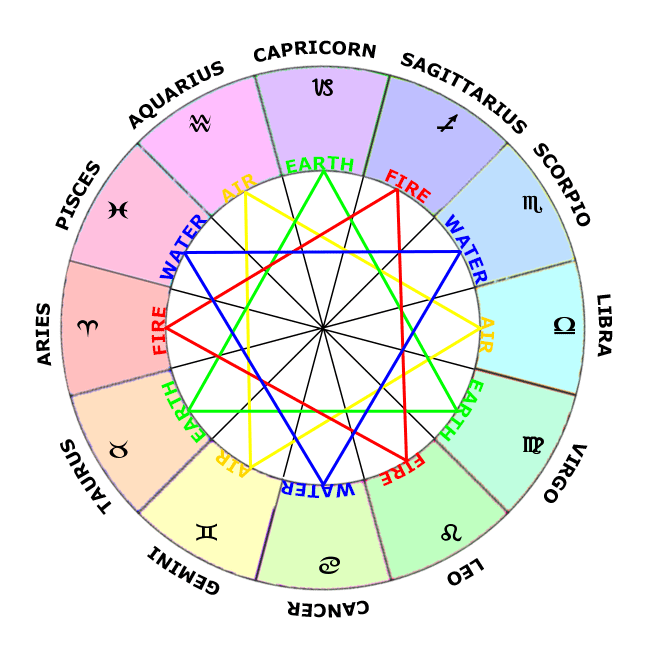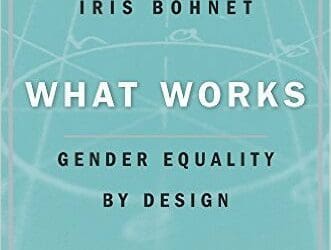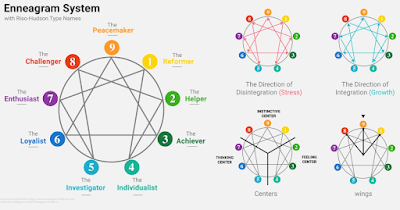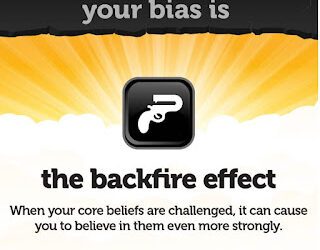I reviewed the scientific evidence related to the enneagram in part 1 of this article and concluded it is not a very good tool. If you haven’t already done so, I would suggest reading it. In this post, I will address the reasons why the enneagram seems to work for so many people. This is necessary because most people value their own personal experiences above scientific evidence so an understanding of why an unreliable test seems reliable will be more convincing. I will also discuss why it matters whether we use it and offer recommendations for better resources. There’s also a part 3, which is a paper I presented at an academic conference about the enneagram and spiritual growth.
Why the Enneagram “works”
I personally know several people who swear by the enneagram. They claim it has made them better people, helped them grow spiritually, improved their marriage, and helped them with evangelism. You may have similarly benefited from it. So why is it that such a questionable tool could be so helpful for so many people?
The short answer is that our thinking is governed by quick-thinking mechanisms that make life easy for us, but unfortunately, they also lead us astray sometimes. A good book on the subject is Thinking, Fast and Slow. When I teach on this subject, my favorite example to use is sugar and hyperactivity. Nearly 100% of people are certain that sugar causes kids to be hyperactive; however, the scientific evidence doesn’t support this. Instead, people who think a kid has had sugar will rate that kid’s behavior as more hyperactive than someone who does not think the kid had sugar. There are several of these types of heuristics and biases that can explain why the Enneagram works.
 Before getting to the explanations, I want to make a quick note. While I am hesitant to compare the enneagram to astrology because the enneagram seems to have a little more validity, I still think it is helpful and necessary to do so because they are both promoted by advocates for the same reason, because it just “works” (On a side note, I did find this site by an astrologer, this one by a skeptic, and others that claim they are indeed the same thing). So if you are a proponent of the enneagram and you get upset with me for these explanations, keep in mind that a proponent of horoscopes would be equally upset with these explanations for why astrology seems to work.
Before getting to the explanations, I want to make a quick note. While I am hesitant to compare the enneagram to astrology because the enneagram seems to have a little more validity, I still think it is helpful and necessary to do so because they are both promoted by advocates for the same reason, because it just “works” (On a side note, I did find this site by an astrologer, this one by a skeptic, and others that claim they are indeed the same thing). So if you are a proponent of the enneagram and you get upset with me for these explanations, keep in mind that a proponent of horoscopes would be equally upset with these explanations for why astrology seems to work.
Reason 1: Coincidence
The main reason I think the enneagram works so well (for some) is that by random chance, any description of human tendencies will describe some people very well. By the same coincidence, it will be completely off for some people and will have varying degrees of accuracy for others. Your enneagram number may perfectly describe you, but for others, it may only partially describe them, and yet for others, it may seem like it doesn’t describe them at all. I received a lot of responses from part 1 of this article confirming that it is way off for some people (just as it is spot on for others).
I will use myself as an example, I am mostly a 5 on the enneagram, but I consistently have a lot of characteristics of a 1. From time to time, I also score fairly high on various other types, but that is pretty inconsistent. In fact, I’ve also been typed as a 1, 7, and 9 by different tests. Probably the best way to describe me on the enneagram is a 5 with a 1 wing (which isn’t even theoretically possible on the enneagram), with regular 9, 6, and 3 tendencies, occasional 2 and 8 tendencies, and only rare 4 and 7 tendencies, but the enneagram doesn’t get into that kind of depth.
Moreover, according to the enneagram, my sin as a 5 is avarice (hoarding); however, of all the sins listed for the enneagram types, this is probably the one I struggle with the least! Ironically, the sin I probably struggle with most is associated with 7s (although the sins of 1s and 2s are about equal), which is the direction I am supposed to move when I am “healthy.”
Reasons 2-3: False Consensus Effect & Availability Heuristic
The false-consensus effect describes the tendency to think there is consensus when there isn’t and the availability heuristic describes the tendency to assign greater weight to things that are more available to our minds. In this case, our own thoughts about the enneagram are more available than the thoughts of others. A combination of these effects makes the enneagram seem so much more reliable to the people who just happen to closely match a specific type. If you are one of those people, you are much more likely to think it works for others just as well, but this is not necessarily the case.
Reason 4: Forer Effect
The next reason it works is because of what scientists call the Forer Effect (here’s a helpful video about this effect), named after the scientist who discovered it on people using horoscopes. This effect is also sometimes referred to as the Barnum Effect. This effect describes the tendency for people to think that broad descriptions that apply to nearly everyone are specific personal descriptions. I’d be willing to bet that for most people, one or two other enneagram types seem to describe them pretty well, and the detailed descriptions of several other types will have occasional statements that are eerily descriptive of them. Test it out and see for yourself, but remember, you may be one of the rare people who are described extremely well by just one type.
Reason 5: Confirmation Bias 1
Another explanation is confirmation bias, which works in several ways. First, when we read a description that we think is about us, we are likely to think it is more accurate than it is. For instance, if the description says we are analytical thinkers, we will think of specific times when we are analytical thinkers and agree with the statement, even if we are not typically analytical thinkers.
Reason 6: Confirmation Bias 2
The second way confirmation bias works is when the description gets something wrong. In these cases, we may not even consciously notice, and if we do, we are likely to ignore it or forget it. For instance, if our enneagram number is only 75% accurate, it will seem like it describes us perfectly.
Reason 7: Confirmation Bias 3
The third way it works is that it will decrease the likelihood that we see ourselves in other types because we don’t read the other types and if we do, we’ve already closed ourselves off to that possibility that it is about us. If I just accepted that I am a 5 without thinking about it, I would never have noticed that I have many 1 tendencies and was probably a 1 until I was about 22 years old (which is another thing that’s not supposed to even be possible with the enneagram).
Reason 8: Poor Self-Evaluation
Yet another reason the enneagram works is because people are typically bad at evaluating themselves. The enneagram can certainly help in many cases. For instance, if I am getting an F in a class, a study method that could get me up to a D would be helpful, especially if it was easy to do (which is one of the big draws of the enneagram), but it wouldn’t be nearly as good as a study method that could be me an A. If I cling to the first one because it worked, I’ll miss out on a method that works even better.
Reason 9-10: Non-Unique Effects & Correlation/Causation Error
Related to this is the likelihood that other factors may be contributing more than the enneagram. If I try a new study method, study more often, sleep more, and eat healthier, which factor explains why my grade went from an F to a D? Many people who use the enneagram are looking into themselves for the first time or talking to others about it their personal struggle in an open and authentic way for the first time. If they see growth, is it really due to the enneagram? It seems more likely it is because they started to look into themselves, were interested in growing, talked to others about their personal lives, and/or received feedback from others. Correlation does not equal causation. So I will admit that it truly is helpful in some cases, but this benefit is probably not unique to the enneagram (and I would argue the enneagram is not the best method either).
Reason 11-12: In-Group Bias & Groupthink
All these effects are likely compounded by in-group bias (if you heard about the test from a trusted source) and groupthink (if the test is done or discussed in a group), both of which will make it more likely for a person to think the enneagram is accurate and is valid for all people. We trust people who are part of our group so we often fail to notice when they are wrong about something. Once we start talking openly, especially with people we already trust, groupthink can allow bad ideas to grow unhindered.
All of these explanations are widely accepted by psychological scientists for why people sometimes make errors in their reasoning. This is just the normal way people think so the growing popularity of the enneagram is not surprising. After all, it does seem like a pretty good test on the surface (this is known as face validity, which is the lowest level of scientific validity and not technically a form of validity since it depends on the person making the critique).
What’s the Big Deal Anyway?
You may be asking what’s the big deal with using the enneagram? That’s a good question. If it were harmless, I would say go ahead and use it. If it helps you, great; if not, then don’t use it. In most situations, it’s probably not going to be harmful, but in some cases it can be extremely harmful. This is because it’s supposed to reveal things about yourself that you are not aware of, but there is no way to tell if it is wrong. Therefore, you have to accept it uncritically, which would be harmful if it is wrong, or disagree with it, which would be harmful if it is right…but there’s no way to actually know! With this in mind, here are four reasons why I think this is an important matter for Christians.
Reason 1: Harm
The first is because the use of an invalid tool can be deeply harmful for people, especially when it comes from a person of authority. If a pastor, counselor, or spiritual leader uses the Enneagram to help someone, what happens when it is wrong? The person will likely feel embarrassed and think they are even worse off than they thought. If they assume the test is valid even though it doesn’t really describe them, then they will spin their wheels trying to solve problems they don’t have. If they assume the test is invalid, they will lose respect and trust for the person who gave it to them and the counseling will be less effective.
If you’re using the enneagram in a less formal setting, among friends or a small group, the same outcomes as above are likely, but to a lesser degree. Worst-case scenario, I could foresee that when it doesn’t work for people, yet it is continued to be pushed, it could become one of several significant factors for suicide, depression, or substance abuse. Yes, this is unlikely and probably rare, but when a tool is used by millions of people, rare actions occur repeatedly.
Even considering the least harmful scenario, a person uses the enneagram for their own personal growth without talking about it from others, I still don’t recommend it for the reasons above. Also, when you use it privately or talk about it positively with others, you support the organizations pushing it and give it greater credibility than it deserves so others are more likely to use it.
Reason 2: Reputation
The second reason I think Christians should stay away from the enneagram is because this is the type of stuff that gives Christians and Christianity a bad name and makes it seem like Christians are anti-intellectual and anti-science. You cannot explain what the Enneagram is to a thinking person and expect them to think it’s anything other than a modern version of astrology (which some astrologers actually say it is and use it as such. Also see the skeptics dictionary on the enneagram). This is especially true for people who have any formal training in psychology. I don’t quite think it warrants the same label as astrology because it was produced through some rational thought and has some level of validity, but at the same time, it is wrought with validity issues and grossly over-exaggerated and unsupported claims.
To be clear, just because something “seems” to give Christianity a bad name is not a reason against it. There are a small handful of things which typically gives Christianity a bad name, but Christians should still take a stand on these issues. The Enneagram, however, is not one of those issues because it cannot be supported by scientific evidence. For this reason, telling someone “the Enneagram worked for me” sounds much like telling someone “astrology worked for me” and just confirms negative stereotypes about Christians.
Reason 3: Barrier to understanding
Third, it is a barrier to understanding others, which may sound odd since it’s supposed to help people understand others. In simple terms, the Enneagram is a PC way to stereotype people. Once you have it in your head that a person is a certain number, you will filter everything they say and do through your expectations based on the Enneagram. This will cause you to misunderstand others, what they are trying to say, and what their intent is…and that is assuming you correctly categorize them in the first place (which is unlikely based on the scientific evidence in part 1).
You could say that if I get it wrong, I’ll just adjust. In theory, yes, but in reality, once we have something in our minds, it’s extremely hard to adjust, even for trained professionals (as an example, here’s a landmark study where trained psychiatrists interpreted normal behavior as schizophrenia symptoms because they thought the person had schizophrenia). It would likely be a very long time before you recognized you were wrong about someone else after you have categorized them.
Reason 4: Barrier to better tools
The final reason is because using the enneagram creates a barrier to better tools. If people are familiar with the Enneagram, use it, and benefit from it, they will resistant to other tools that can do the same thing even better. This is typical human nature. We like what we know and are extremely resistant to change or admitting that we might be wrong or have chosen something that is not the best. The sooner you cut ties with the Enneagram, the better. I have provided several tools below that I think will be more effective for whatever you need it for. On a side note, doesn’t it seem odd that the Enneagram claims to be able to do so many different things? Just saying…
Because the Enneagram does not have strong psychometric properties or external validity, and because the potential harm outweighs the benefits, I recommend not using it. If you still disagree with me, let me try to convince you one more time before offering suggestions that can serve as a replacement.
Still not convinced?
My hope is that I’ve convinced some Christians (and non-Christians) to stop using the enneagram. If I haven’t convinced you, this is my last attempt, which blends a bit of logic and humor! You’re gonna love it!
My enneagram type is a 5, which means that I am an informed and unbiased thinker/investigator. However, every other type is dominated in their thinking by non-rational goals or biases. Therefore, anyone who is not a 5 and thinks the enneagram is valid should admit that their thinking is biased (and limited) on this topic and therefore, accept my conclusion that the enneagram is not very good. If you still disagree, then the enneagram was wrong about you and/or me, and therefore, you have proven it is not very good.
For the other 5s out there, if the enneagram is valid, then you would already be convinced by the evidence and agree with my conclusion that the enneagram is not very good. If you disagree, then the Enneagram was wrong about you and/or me, and therefore, you have proven it is not very good!
😁Conclusion
I like the idea of what the enneagram is supposed to do and I love that people are willing to grow from it. Ultimately though, I don’t think it can do what people claim it can (and neither can any other psychological tool). For the things the Enneagram can do, there are better tools for people to use that are more valid and reliable. For the things that are beyond any psychological tool, it takes hard work, prayer, study, relationships, time, God, and maybe even therapy. I think one of the draws of the enneagram is that it’s self-help made easy, but unfortunately, there are no shortcuts for most changes (unless God supernaturally intervenes).
Still, I can understand why people may still want to use the enneagram. It’s simple, trendy, and seems to make sense for many people. As long as you are consciously aware of the potential downsides, you can probably overcome most of them. Check out my recommendations below if you still want to use it or if you would like to use better tools.
In my next article, I will discuss the proper use of personality tests and the limitations of them, particularly for apologetics and those in ministry. I know they can be especially tempting to use for a plethora of situations, but unfortunately, they are often used inappropriately.
Recommendations
For those who still want to use the enneagram, please remember to take everything with a grain of salt. The enneagram simply cannot do what many people claim it can, and it is likely wrong in a major way that it describes you, so don’t feel as though you cannot disagree with it. Second, if you insist on using it, use the 9types.com version because it rightly recognizes there is overlap between types and gives you a separate score for all nine types, which will be more helpful than locking yourself into a single category.
Even with a cautious use of the enneagram, I still think the following materials will be more effective for the majority of people.
If you want to know more about your own personality and use it for self-improvement, connection, or spiritual growth, here are two good versions of it. The first one, UnderstandMyself.com, is from Dr. Jordan Peterson and several other psychologists. It costs $10 so it’s fairly cheap. The test will give you your personality based on the Big 5, with each category divided into two major sub-components. Even though it costs money, it is probably the best choice for knowing yourself and improving because it guides you to what your results mean. Here’s a video from Jordan Peterson about the test.
Another option is a free Big 5 assessment by scientists at Penn State, which will give you your Big 5 results, with each category divided into six sub-components! Unfortunately, this one will not really explain your results so you’ll have to interpret them on your own by understanding the category and thinking about how it might positively or negatively impact your life. To access this test, click here.
An emotional intelligence test or book such as Emotional Intelligence (Goleman) or Emotional Intelligence 2.0 (Bradberry) may also be helpful.
If you want something to improve your marriage or other relationships, I would start with The Seven Principles for Making Marriage Work or anything else by John Gottman. Other good books are Love & Respect, Fighting for your Marriage, The Five Love Languages, and His Needs, Her Needs. Even though these books are all a little different in their focus and application, they’re all compatible with each other and scientific research.
For parenting help, I recommend books by Dr. Kevin Leman (who is a Christian and also does good marriage books), Daniel Siegel (such as The Yes Brain), or ScreamFree Parenting (which also has a companion marriage book). On a side note, I strongly discourage any Ezzo books (e.g. Baby Wise) for parenting.
If you are interested in improving your evangelism skills or apologetic method, check back here as I am working towards the science of persuasion. For now though, the best book I can recommend is Influence: Science and Practice. It’s not a Christian book so you’ll have to apply it to evangelism and apologetics, but it’s still great. Other excellent books for this are Tactics (Christian book) and How to Win Friends and Influence People (semi-Christian book).
For spiritual growth, I recommend reading and listening to books or sermons by David Platt, John Piper, and A.W. Tozer. You may disagree with their theology on some things, but even so, they can still help you grow spiritually.
If you want to become a better leader, consider Servant Leadership, The 7 Habits of Highly Effective People, Up the Organization, or Leaders Eat Last.
For communication skills, which also relates to leadership and relationships, consider Fierce Conversations or Crucial Conversations.



